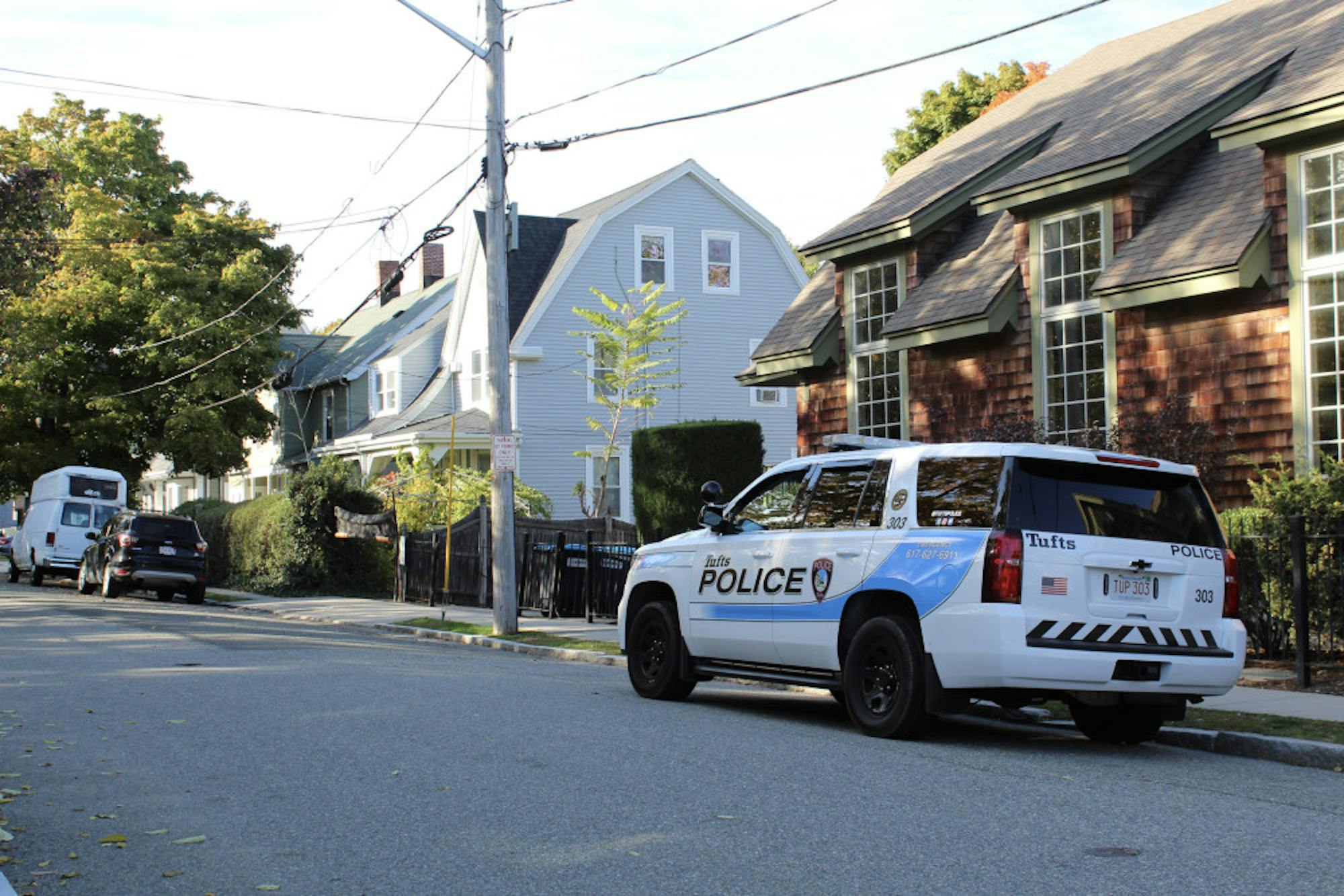The Tufts University Police Department has introduced several initiatives in order to foster better relationships with the community, including a new comfort dog, Pepper.
Yolanda Smith, executive director of public safety, explained in an email to the Daily that Pepper will serve as a community resource, offering emotional comfort.
“Comfort dogs are an amazing mental health resource for community members who may have witnessed or experienced a traumatic situation,” Smith wrote.
Pepper is currently training off campus, but she will return to campus soon under the care of her handler, officer Rob Moschella.
According to Ariana Chiarenza, communications manager for public safety, other strategies for better connecting with the community include having new security officers on the Medford/Somerville campus and increasing communications with all four campuses.
Chiarenza said having close contact with a community “can better help us understand the needs of a community and what approaches … work,” Chiarenza wrote in an email to the Daily. “It also helps to familiarize community members with the Department and to know the [Department of Public Safety] personnel who work within the community. It’s vital to relationship-building and fostering trust.”
First-year Vishal Romero hopes for more friendly interactions with TUPD.
“I’d like to see [TUPD] work with students outside of the actual police work,” Romero said. “I don't know a whole lot of people that are friendly with any of the TUPD officers. … All of my interactions with TUPD are not necessarily unfriendly, but [are] clearly like business.”
Smith additionally commented on the 2023 Annual Fire Safety and Security Report, which the DPS recently released. The report, which is made in compliance with the Crime Awareness and Campus Security Act of 1990 and the Jeanne Clery Act of 1998, includes crime statistics from the previous year.
“The intention for putting the Clery Report forward to the community is so that everyone can learn about what is happening in and around our campuses,” Smith wrote. “Many incoming students and their families rely on the report to make informed decisions regarding attendance at Tufts University. Hopefully, publishing the Clery Report annually will show our dedication to transparency within our department.”
The DPS has also recently introduced the Campus Security Officer position to allow more versatility in addressing certain calls.
“The CSO program has already been successful on the Boston campuses for many years, so we were able to take something very well-received and make it universal,” Smith wrote. “As well, we recognize that a TUPD officer is not always the right person to respond to calls in certain circumstances, so we are able to now provide the same support to the Medford/Somerville campus using non-sworn individuals instead.”
The department also says it is working to get to know the student community better with events such as “Coffee with TUPD,” where students can meet with officers for free coffee.
“I encourage students to attend any event we are sponsoring or participating in and around campuses,” Smith wrote. “We also encourage our students to stop at the stations to say hello and learn more about our work. … We want to be seen as fellow community members, and we want to respectfully engage with students as much as possible.”
The department has launched a new dashboard which allows people to see progress on new DPS initiatives.
“DPS is open and committed to change and accountability. The dashboard allows the community to keep up to date with what's happening ‘behind the scenes’ to let them know that we are committed to embracing new practices and policies,” Chiarenza added.
Chiarenza also referred students wishing to make feedback to a form on the TUPD website. Additionally, according to Chiarenza, DPS will release a community survey in November to collect feedback.
Alex Friedman, who is a first-year, acknowledged that there could be “an element of distrust” of police on college campuses, but said the TUPD “does definitely try to do a good job.”
“To be honest, I don’t think most students get their primary emotional support from the police,” Friedman said. “I think most people’s mental health comes from other outlets. But any step towards prioritizing people’s mental health is a good idea.”






